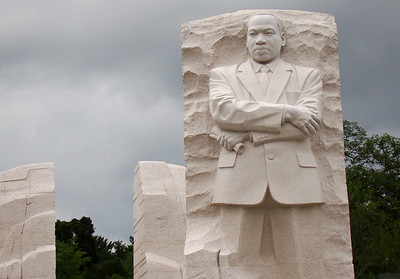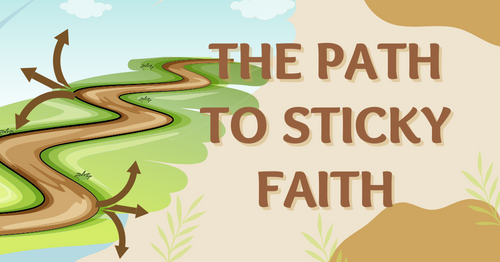
MLK Day: In the time of BLM and CRT how can it be relevant, encouraging, or even fair to be a “chosen race”?
We live in times when the very idea of a “chosen race” is offensive.
And yet, God was not hesitant in the least to tell Moses, “Now therefore, if you will indeed obey my voice and keep my covenant, you shall be my treasured possession among all peoples, for all the earth is mine; and you shall be to me a kingdom of priests and a holy nation. These are the words that you shall speak to the people of Israel” (Exodus 19:5-6).
Having just delivered Israel from bondage to the Egyptians, God leads them to Mt. Sinai and, upon arrival, this is the very first thing he tells Moses to tell them. He is giving them a new identity: his chosen people. His treasured possession.
He wants them to know that “all the earth is mine,” and out of “all peoples” Israel will have a special relationship with him and a unique identity. “If you obey my voice and keep my covenant,” you will be a “holy nation.” A “holy” nation is a nation “set apart” from all other nations. You will be a kingdom of priests endowed with kingly authority to bring people to me.
This is so foreign to our deeply democratic sensibilities. “We the people” choose our own leaders. We believe in equality. One citizen, one vote. What made Israel so special? And how can being a “chosen race” be a source of deep encouragement and challenge or even fair in today’s world?
Nothing. They had been slaves for 400 years. And God delivered them by humbling their oppressors with ten terrible plagues they had nothing to do with. They hadn’t done anything special.
Why, then, did God choose Israel?
In Deuteronomy 7:6-8 Moses tells them, “He has chosen you to be his people, prized above all others on the face of the earth. It is not because you were more numerous than all the other peoples that the Lord favored and chose you—for in fact you were the least numerous of all peoples. Rather it is because of his love for you and his faithfulness to the promise he solemnly vowed to your ancestors that the Lord brought you out with great power, redeeming you from the place of slavery, from the power of Pharaoh king of Egypt.”
God loved Abraham and gave him a promise. And God loved Israel and fulfilled his promise. Not because of any moral superiority or great accomplishments on their part. God loved them because he chose to. Because of sheer grace. Sheer mercy. How humbling.
Peter takes it even further
In the New Testament, Peter takes what Moses said about the identity of Israel and expands it to describe our identity as followers of Jesus: “But you are a chosen race, a royal priesthood, a holy nation, a people for his own possession, that you may proclaim the excellencies of him who called you out of darkness into his marvelous light. Once you were not a people, but now you are God’s people; once you had not received mercy, but now you have received mercy” (1 Peter 2:9-10).
All who are in Christ have an even greater identity: In addition to being a chosen race or people, a nation “set apart” and God’s own treasured possession, each of us has been called to be a royal priest with the King’s express authority to help bring people to belief and union with him.
However, the New Testament sets any idea of an exclusive, chosen race on its head. This chosen race is meant to be radically inclusive:
The most inclusive chosen race imaginable
Imagine a chosen race where there is no distinction based on race. No slavery or prejudice based on skin color. No difference in value or esteem whether male or female.
Paul makes it clear that if we are in Christ, “There is neither Jew nor Greek, there is neither slave nor free, there is neither male nor female, for you are all one in Christ Jesus. And if you are Christ’s, then you are Abraham’s offspring, heirs according to promise (Galatians 3:28-29). This is the way God sees us. This is reality according to the One who created and directs reality.
Do we have different talents, capacities and roles? Yes. But in Christ we are all one–all chosen, all loved, all heirs of Abraham and the promises given to him. We have such a foundation for trust. Such possibilities for relationship and intimacy.
How deeply different from critical race theory
Critical race theory teaches us to see the world as a struggle between oppressors and victims–the powerful white majority vs. the less powerful minorities of color. For many who embrace it, it means that our skin color or race becomes the most determinative aspect of our identity. It may create deep suspicion that whites can’t help but be racist. And blacks can’t escape being oppressed without systemic revolution.
The idea of a chosen race, a royal priesthood, or a holy nation set apart from others may sound like sanctioned, institutionalized oppression.
But that interpretation is the opposite of what God has ordained. In Christ our identity does not ignore skin color and race. God delights in our different skin colors. And we should celebrate the differences he was pleased to create. But how ironic that in Christ our identity transcends race and skin color.
In Christ, our identity is not white or black or brown.
In Christ, our identity is not a victim, but an overcomer.
In Christ, our identity is not an oppressor, but a servant of the King and others.
Instead of focusing on our differences, our identity in Christ invites us to focus on how deeply we are loved and chosen and rescued from the fallenness of this world, including the evils of racism. The unshakable foundation of our identity is how, in Christ, we are treasured and chosen by our Creator and Lord of the universe. He doesn’t love us for what we can do for him. He simply…loves us. For who we are. Our quirks. Our foibles. The uniqueness of our laughter. Our tears. All of us.
Instead of focusing on our differences, our identity in Christ invites us to focus on how deeply we are loved and chosen and rescued from the fallenness of this world, including the evils of racism. The unshakable foundation of our identity is how, in Christ, we are treasured and chosen by our Creator and Lord of the universe. He doesn’t love us for what we can do for him. He simply…loves us. For who we are. Our quirks. Our foibles. The uniqueness of our laughter. Our tears. All of us.
Dr. Martin Luther King is rightly famous for saying that he wanted his children to grow up in “a nation where they will not be judged by the color of their skin but by the content of their character.” Judging by the merit of actions and character is far more just that judging on the basis of skin-color.
But it is the height of God’s glory to love us and choose us not on the basis of any merit or even character we have attained but according only to his mercy and love for us. That is the beautiful and deeply encouraging truth of our real identity of being a chosen race in Christ.
It is also the challenge: May we humbly love and serve Jesus by acknowledging the damage caused by racism and commit to reach out and love people of color and help them in every practical way. May we be the royal priests that help them find justice and bring them to the God of justice and his life of blessing and forgiveness.




